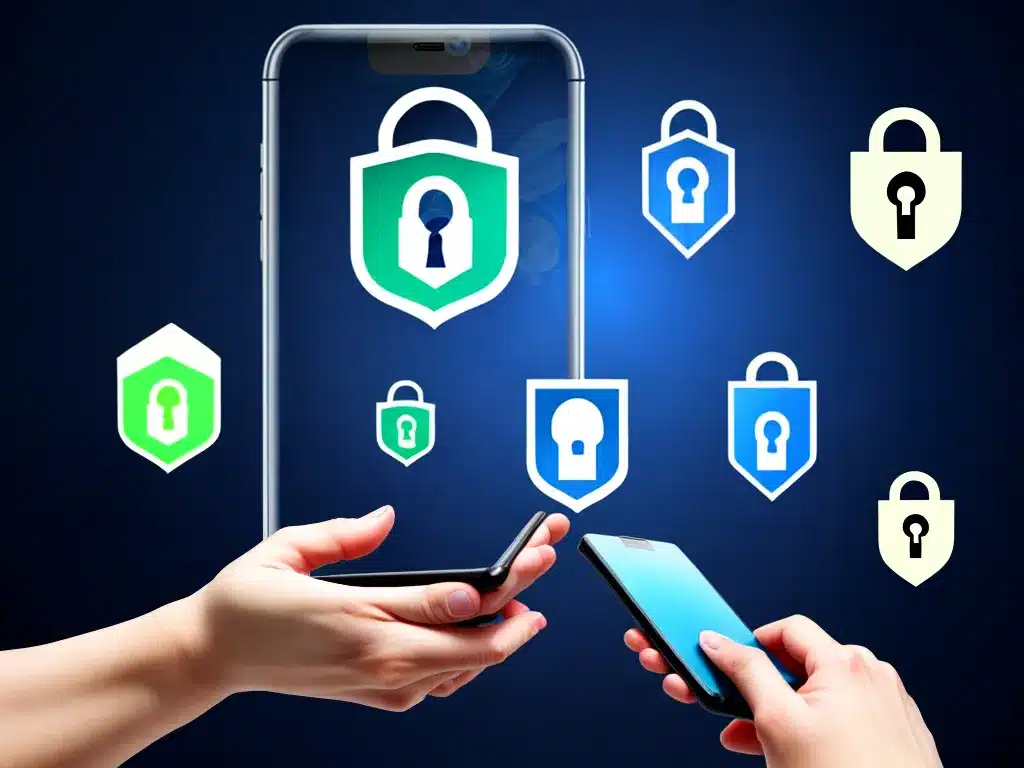
Mobile devices like smartphones and tablets have become an indispensable part of our daily lives. However, they also come with risks if not used securely. Here are some best practices to keep your mobile devices and data safe:
Use Strong Passwords or Biometrics
Passwords are the first line of defense for your device. Use a strong alphanumeric password with minimum 8 characters. Avoid easy to guess passwords like birthdays or anniversaries.
Enable biometrics like fingerprint or face recognition if your device supports it. Biometrics are more convenient than passwords and equally secure.
Keep Your Device Updated
Mobile OS developers like Apple and Google regularly release software updates containing vital security patches. Always keep your device updated to the latest OS version.
Enable automatic updates on your device if the option is available. Updates ensure you have the latest security fixes.
Avoid Public WiFi for Sensitive Tasks
Public WiFi networks present a major risk as they are easy to hack into. Avoid accessing sensitive apps like banking or shopping apps on public WiFi.
If you need to access such apps, use your mobile data or a reputable VPN service. VPN encrypts your traffic and masks your identity.
Install Antivirus and Other Security Apps
Mobile antivirus apps like Avast, AVG or Bitdefender provide real-time protection against malware, spyware and network based threats. Install a reputable mobile antivirus app for your device OS.
Also install apps like Find My Device or Cerberus anti-theft to remotely locate, lock or wipe your device if it is lost or stolen.
Avoid Unknown App Stores and Links
Stick to reputable app stores like Apple App Store or Google Play Store. Avoid unknown third party app stores which may contain malware infected apps.
Exercise caution with links and attachments, especially from unknown sources. They may install malware, spyware or steal your data.
Limit App Permissions
Be thoughtful about permissions requested by different apps. Avoid granting unnecessary permissions like location or contacts access to all apps.
Review installed app permissions periodically and revoke non-essential permissions. This limits data access to untrusted apps.
Enable Remote Lock and Wipe
Losing your mobile device is painful, but losing sensitive data is worse. Enable options to remotely lock or wipe your device in case it is lost or stolen.
Android devices support Google Find My Device to locate, lock or erase data. iPhones can be wiped using iCloud online.
Avoid Public Charging Stations
Public USB charging stations in airports, hotels or restaurants are designed to steal data from mobile devices. Avoid using such charging stations as they may install malware or copy your data.
Carry your own charger and power bank when travelling. Only use trustworthy power sources to charge your phone.
Limit Use of Public WiFi
Public WiFi networks in airports, cafes or hotels are unsecured and prone to hacking. Avoid performing sensitive transactions like online shopping or banking over public WiFi.
If you need to access your accounts, try using your mobile data instead of public WiFi to mitigate risks.
Frequently Back Up Your Data
Regularly back up important data stored on your mobile device like contacts, photos and other media. Backups ensure you have recoverable copies in case your device is damaged, lost or wiped.
You can back up mobile data both locally as well as on cloud drives. Make redundant backups for maximum data protection.
Install a VPN Service
Virtual Private Network (VPN) services like NordVPN or ExpressVPN encrypt all network traffic between your device and the internet. This prevents hacking or surveillance of your activity.
VPN also masks your IP address and location, providing anonymity while browsing or accessing apps and services on public WiFi.
By following these best practices, you can use your mobile device securely for both personal and professional needs. Be thoughtful about security to get maximum utility from smartphones and tablets while avoiding undue risks or data theft. Maintaining mobile device security requires effort but pays rich dividends.












